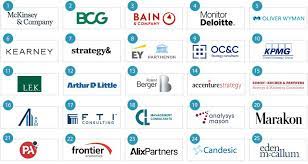Unleashing the Potential: The Power of a Freelance Marketing Consultant
The Rise of the Freelance Marketing Consultant: Unlocking Success for Businesses
In today’s fast-paced and ever-changing business landscape, companies are seeking innovative ways to stay ahead of the competition. One solution that has gained significant popularity is hiring freelance marketing consultants. These independent professionals bring a wealth of expertise and a fresh perspective to help businesses navigate the complex world of marketing.
So, what exactly is a freelance marketing consultant? Simply put, they are skilled professionals who work independently and offer their services on a project basis. Unlike traditional in-house marketers or agencies, freelance consultants provide flexible solutions tailored to the specific needs of each client.
One of the key advantages of hiring a freelance marketing consultant is their ability to bring a diverse range of skills and experiences to the table. Many freelancers have worked with various clients across different industries, giving them valuable insights into what works and what doesn’t. This breadth of knowledge allows them to adapt quickly to new challenges and deliver effective strategies that yield results.
Flexibility is another major benefit that comes with hiring a freelance marketing consultant. Businesses can engage freelancers for short-term projects or ongoing support, depending on their requirements. This flexibility enables companies to scale up or down their marketing efforts as needed without being tied down by long-term contracts or hefty fees.
Cost-effectiveness is also a significant advantage when working with freelance marketing consultants. Unlike agencies that often have high overhead costs, freelancers typically operate with lower expenses, allowing them to offer competitive rates without compromising on quality. This affordability makes them an attractive option for small and medium-sized businesses looking for cost-effective marketing solutions.
Collaboration is at the heart of successful freelance partnerships. These consultants work closely with clients to understand their goals, target audience, and unique challenges. By establishing open lines of communication, freelancers can develop strategies that align with the client’s vision while incorporating their own expertise and industry knowledge.
Freelance marketing consultants also excel in staying up-to-date with the latest marketing trends and technologies. They invest time in continuous learning, ensuring they are well-versed in the latest digital marketing strategies, social media platforms, and analytics tools. This commitment to staying ahead of the curve allows them to provide clients with cutting-edge solutions that drive growth and engagement.
The freelance market has seen a significant surge in recent years, with more professionals choosing to work independently. This rise can be attributed to the increasing demand for flexible work arrangements and the desire for greater autonomy. As a result, businesses now have access to a vast pool of talented marketing consultants who can bring fresh perspectives and innovative ideas to their marketing efforts.
In conclusion, hiring a freelance marketing consultant offers businesses numerous advantages—access to diverse skills, flexibility, cost-effectiveness, collaboration, and staying ahead of trends. These professionals can play a pivotal role in unlocking success for businesses by developing effective strategies that drive growth and engagement.
If you’re looking to elevate your marketing efforts and gain a competitive edge in the market, consider partnering with a freelance marketing consultant. Embrace the power of collaboration and expertise as you navigate the ever-evolving world of marketing.
8 Common Queries about Freelance Marketing Consultants in the UK
- Can a freelancer be a consultant?
- Is a marketing consultant freelance?
- How much do freelance marketing consultants charge?
- How do I become a self employed marketing consultant?
- Can you freelance as a marketer?
- How do I start a freelance marketing consultant?
- How much does a freelance marketer cost?
- What is an independent marketing consultant?
Can a freelancer be a consultant?
Yes, a freelancer can also be a consultant. In fact, many freelancers offer their services as consultants in various fields, including marketing, business development, finance, human resources, and more. Freelance consultants bring their expertise and knowledge to provide valuable insights and advice to clients on specific projects or ongoing support.
As a consultant, a freelancer typically works independently and offers their services on a project basis or for a specified period. They collaborate closely with clients to understand their needs, goals, and challenges. Based on this understanding, the freelancer provides strategic guidance, creates plans and recommendations, and helps implement solutions to achieve desired outcomes.
Freelance consultants often have extensive experience in their respective fields and may have worked with multiple clients across different industries. This exposure allows them to bring diverse perspectives and best practices to the table when working with new clients. They leverage their expertise to analyze situations, identify opportunities for improvement or growth, and offer tailored solutions that align with the client’s objectives.
The flexibility of freelance consulting is another advantage for both the consultant and the client. Freelancers can adapt their schedules and workload based on client demands while offering cost-effective solutions without long-term commitments or high overhead costs. Clients benefit from accessing specialized skills without the need for permanent hires or engaging larger consulting firms.
Whether it’s providing strategic guidance, conducting market research, developing business plans, or offering specialized expertise in a particular area, freelance consultants can provide valuable insights and support to businesses of all sizes. Their ability to work independently while bringing fresh perspectives makes them an attractive option for companies seeking expert advice on specific projects or ongoing consultation.
In summary, freelancers can indeed be consultants by leveraging their expertise to provide valuable insights and advice to clients. The freelance consulting model offers flexibility for both parties involved while allowing businesses access to specialized skills without long-term commitments.
Is a marketing consultant freelance?
Yes, a marketing consultant can be freelance. Freelance marketing consultants are independent professionals who offer their services on a project basis or for a specific duration. They work outside of traditional employment structures and often have multiple clients at any given time. Freelance marketing consultants bring their expertise and skills to help businesses with various aspects of marketing, such as strategy development, campaign planning, branding, digital marketing, market research, and more. They offer flexibility and tailored solutions to meet the specific needs of each client while operating independently and managing their own business affairs.
How much do freelance marketing consultants charge?
The rates charged by freelance marketing consultants can vary depending on several factors, including their level of experience, expertise, location, and the scope of the project. It’s important to note that freelance marketing consultants typically charge on an hourly or project basis.
Hourly rates for freelance marketing consultants can range anywhere from £30 to £150 or more, depending on the consultant’s level of experience and the complexity of the work involved. Keep in mind that highly experienced consultants with a proven track record may charge higher rates due to their expertise and the value they bring to your business.
For project-based assignments, freelance marketing consultants often provide a cost estimate based on the specific requirements of the project. The overall cost will depend on factors such as the scope of work, deliverables, timeline, and any additional services required.
It’s advisable to discuss your budget and expectations with potential freelance marketing consultants during the initial consultation or negotiation phase. This allows both parties to align their expectations and ensure that there is a mutual understanding of pricing and deliverables.
While cost is an important consideration when hiring a freelance marketing consultant, it’s equally crucial to focus on their experience, skills, and track record. Remember that investing in a qualified professional who can deliver effective results can ultimately yield a higher return on investment for your business.
It’s also worth noting that some freelance marketing consultants offer package deals or retainer options for ongoing projects or long-term collaborations. These arrangements often provide more value for businesses seeking consistent support over an extended period.
Ultimately, the fees charged by freelance marketing consultants will vary based on individual circumstances. It’s recommended to reach out to multiple consultants, discuss your specific needs with them, and obtain detailed quotes or proposals tailored to your project requirements before making a decision.
How do I become a self employed marketing consultant?
Becoming a self-employed marketing consultant can be an exciting and rewarding career path. Here are some steps to help you get started:
- Develop your marketing skills: Gain a solid foundation in marketing principles and strategies. Consider pursuing a degree or certification in marketing or related fields. This will provide you with the necessary knowledge to excel as a marketing consultant.
- Gain experience: Before venturing into self-employment, it’s essential to gain practical experience in the field. Look for opportunities to work in marketing roles within organizations or agencies. This will allow you to apply your knowledge, build your portfolio, and develop a deep understanding of various industries.
- Define your niche: Identify your area of expertise within the broad field of marketing. Specializing in a specific industry or type of marketing (such as digital, content, or social media) can help you stand out from competitors and attract clients who value your expertise.
- Build a strong network: Networking is crucial for any self-employed professional. Attend industry events, join relevant professional associations, and connect with fellow marketers and business owners. Building relationships with potential clients and collaborators will help you establish credibility and generate leads.
- Create a business plan: Outline your vision, target market, pricing structure, services offered, and marketing strategies in a comprehensive business plan. This will serve as a roadmap for your consultancy business and guide your decision-making process.
- Set up your business: Register your business name with the appropriate authorities and obtain any necessary licenses or permits required in your jurisdiction. Consider consulting with an accountant or lawyer to ensure compliance with tax regulations and legal obligations.
- Develop a strong online presence: Create a professional website that showcases your skills, experience, services offered, testimonials from past clients if available, and contact information. Establish profiles on relevant social media platforms where potential clients are active.
- Market yourself: Implement effective marketing strategies to promote your services and attract clients. This may include content marketing, social media marketing, attending industry conferences, guest speaking at events, or offering free consultations to demonstrate your expertise.
- Provide exceptional service: Deliver high-quality work and excellent customer service to build a strong reputation as a reliable and results-driven marketing consultant. Satisfied clients are more likely to refer you to others and become repeat customers.
- Continuously learn and adapt: The field of marketing is constantly evolving. Stay updated with the latest industry trends, technologies, and best practices by attending workshops, webinars, conferences, or taking online courses. This will ensure your skills remain relevant and enable you to provide cutting-edge solutions to your clients.
Remember that building a successful self-employed consultancy takes time and dedication. Be patient, persistent, and always strive for excellence in delivering value to your clients.
Can you freelance as a marketer?
Yes, freelancing as a marketer is a popular and viable career option. Many professionals choose to work as freelance marketers due to the flexibility, autonomy, and potential for varied projects and clients. As a freelance marketer, you can offer your services to businesses of all sizes, industries, and locations.
To succeed as a freelance marketer, it’s essential to have a strong foundation in marketing principles and strategies. This includes knowledge of digital marketing channels such as social media, search engine optimization (SEO), content marketing, email marketing, and more. Additionally, staying up-to-date with the latest trends and tools in the industry is crucial to provide effective solutions to clients.
Building a successful freelance marketing career requires more than just technical skills. It’s important to develop strong communication skills to effectively understand clients’ needs and convey your ideas and strategies. Marketing consultants also need excellent project management abilities to handle multiple projects simultaneously while meeting deadlines.
Freelance marketers often find clients through networking, referrals from satisfied customers, online platforms dedicated to freelancing (such as Upwork or Freelancer), or by establishing their own website or portfolio to showcase their expertise. Building a strong professional network and maintaining positive relationships with clients can lead to repeat business and referrals.
The income potential for freelance marketers can vary depending on factors such as experience level, niche specialization, geographic location, and the scope of projects undertaken. Freelancers typically charge an hourly rate or project-based fees that reflect their expertise and the value they bring to clients.
As with any freelance career, it’s important for freelance marketers to manage their finances effectively by budgeting for taxes, accounting for periods of fluctuating income, and setting aside funds for professional development opportunities.
Overall, freelancing as a marketer can be an exciting career choice that offers flexibility, independence, diverse projects, and the opportunity for continuous growth in the ever-evolving field of marketing.
How do I start a freelance marketing consultant?
Starting a freelance marketing consultant career can be an exciting and rewarding venture. Here are some steps to help you get started:
- Define your niche: Determine the specific area of marketing in which you want to specialize. It could be social media marketing, content marketing, SEO, branding, or any other aspect that aligns with your skills and interests. Focusing on a niche will help you differentiate yourself in the market.
- Assess your skills and experience: Evaluate your existing marketing skills and experience. Identify areas where you excel and areas where you may need further development. Consider taking courses or obtaining certifications to enhance your knowledge and credibility.
- Build a portfolio: Create a portfolio showcasing your past work, projects, and successes. If you don’t have previous client work to showcase, consider creating sample projects or offering pro bono services to build up your portfolio.
- Set your rates: Research industry standards and determine how much you will charge for your services. Consider factors such as your experience level, expertise, market demand, and the value you bring to clients’ businesses.
- Establish an online presence: Create a professional website or blog that highlights your services, expertise, and portfolio. Use social media platforms like LinkedIn to network with potential clients and showcase your knowledge through valuable content.
- Network and build relationships: Attend industry events, join professional organizations, and participate in online communities relevant to the marketing field. Engage in conversations with fellow professionals, potential clients, and thought leaders in the industry.
- Market yourself: Develop a strong personal brand that reflects who you are as a freelance marketing consultant. Utilize various marketing strategies such as content creation (blogging or podcasting), guest speaking at events or webinars, email marketing campaigns, or targeted advertising to reach potential clients.
- Secure clients: Start reaching out to potential clients by leveraging your network or using online freelancing platforms specifically designed for connecting freelancers with businesses. Craft compelling proposals that highlight your expertise and how you can help clients achieve their marketing goals.
- Deliver exceptional work: Once you secure clients, focus on delivering high-quality results and exceeding their expectations. Satisfied clients will not only provide positive testimonials but also refer you to others, helping you build a strong reputation.
- Continuously learn and adapt: Stay updated with the latest marketing trends, tools, and strategies. Attend webinars, workshops, or conferences to expand your knowledge and skillset. Adapt to changes in the industry to ensure your services remain relevant and effective for your clients.
Remember, building a successful freelance marketing consultant career takes time and effort. Stay persistent, continuously improve your skills, and provide exceptional value to your clients. With dedication and perseverance, you can thrive in this dynamic field.
How much does a freelance marketer cost?
The cost of hiring a freelance marketer can vary depending on several factors, including their level of experience, expertise, location, and the scope of the project or services required. Freelancers typically charge either an hourly rate or a fixed project fee.
Hourly rates for freelance marketers can range anywhere from £30 to £150 or more, depending on their skillset and experience. Keep in mind that more experienced and specialized freelancers tend to charge higher rates.
For fixed project fees, the cost will depend on the complexity and duration of the project. Freelancers may provide a quote based on their assessment of the work involved or offer package deals for specific marketing services such as social media management, content creation, or SEO optimization.
It’s important to remember that while hiring a freelance marketer may require an investment, it can often be more cost-effective compared to hiring an in-house marketing team or engaging with an agency. Freelancers typically have lower overhead costs and can offer competitive rates without compromising on quality.
When considering the cost of a freelance marketer, it’s essential to focus not only on the price but also on their expertise, track record, and ability to deliver results. Look for freelancers who have relevant experience in your industry and a proven track record of achieving marketing goals.
Ultimately, it’s best to discuss your specific requirements with potential freelancers and obtain detailed proposals or quotes tailored to your project. This way, you can have a clearer understanding of the costs involved and make an informed decision based on your budget and desired outcomes.
What is an independent marketing consultant?
An independent marketing consultant is a professional who provides strategic guidance, advice, and implementation support to businesses on various marketing initiatives. Unlike in-house marketers who are employed by a specific company or marketing agencies that work with multiple clients, independent marketing consultants work on a freelance or contract basis.
Independent marketing consultants are typically self-employed and offer their services to businesses of all sizes and across different industries. They bring a wealth of experience and expertise in marketing strategy, planning, execution, and evaluation. Their primary objective is to help businesses achieve their marketing goals and drive growth.
These consultants work closely with clients to understand their unique challenges, target audience, and business objectives. They conduct thorough research and analysis to develop tailored strategies that align with the client’s vision. Independent marketing consultants can assist in various areas such as brand development, market research, digital marketing, content creation, social media management, advertising campaigns, public relations, and more.
One of the key benefits of working with an independent marketing consultant is the personalized attention and dedicated focus they provide. As they typically work with fewer clients at a time compared to agencies or in-house teams, they can give individualized support and prioritize the client’s specific needs.
Independent marketing consultants also offer flexibility in terms of engagement duration. Businesses can engage them for short-term projects or long-term partnerships based on their requirements. This flexibility allows companies to access specialized skills without committing to permanent hires or long-term contracts.
Cost-effectiveness is another advantage of working with independent marketing consultants. They often operate with lower overhead costs compared to larger agencies and can offer competitive rates while delivering high-quality work. This makes them an appealing option for small businesses or startups with limited budgets.
Furthermore, independent marketing consultants stay up-to-date with industry trends and emerging technologies. They invest time in continuous learning to ensure they are well-versed in the latest digital strategies, tools, analytics platforms, and best practices. This knowledge enables them to provide clients with innovative solutions that drive results.
In summary, an independent marketing consultant is a professional who offers specialized marketing expertise and support to businesses on a freelance or contract basis. They bring strategic insights, industry knowledge, and a fresh perspective to help businesses achieve their marketing objectives. With their personalized attention, flexibility, cost-effectiveness, and up-to-date skills, independent marketing consultants can be valuable partners in driving business growth and success.






